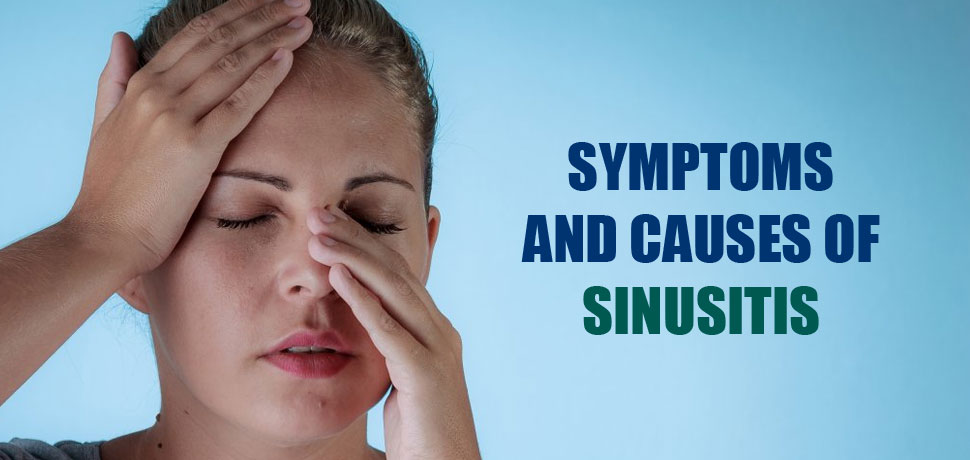Symptoms and Causes of Sinusitis
Chronic sinusitis is a common condition in which, despite treatment attempts, the cavities around the nasal passages (sinuses) become inflamed and swollen for at least 12 weeks.
This condition also known as chronic rhinosinusitis interferes with drainage and causes the build-up of the mucus. It may be difficult to breathe through your nose. You may feel swollen in the area around your eyes and face and may have facial pain or tenderness.
Symptoms
- At least two of the four primary signs and symptoms of chronic sinusitis must be present for the diagnosis of the condition with confirmation of nasal inflammation. They are:
- Thick, discolored discharge from the nose or drainage down the back of the throat (postnasal drainage)
- Nasal obstruction or congestion, causing difficulty breathing through your nose
- Pain, tenderness and swelling around your eyes, cheeks, nose or forehead
- Reduced sense of smell and taste in adults or a cough in children
Other signs and symptoms can include:
- Ear pain
- Aching in your upper jaw and teeth
- A cough that might worsen at night
- A sore throat
- Bad breath (halitosis)
- Fatigue or irritability
- Nausea
Chronic sinusitis and acute sinusitis have similar symptoms and signs, but acute sinusitis is a temporary cold-associated sinus infection. The symptoms and signs of chronic sinusitis last longer and often cause more tiredness. Fever is not a common sign of chronic sinusitis, but one with acute sinusitis may be present.
Causes
Common causes of chronic sinusitis include:
- Nasal polyps. These tissue growths can block the nasal passages or sinuses.
- Deviated nasal septum. A crooked septum — the wall between the nostrils — may restrict or block sinus passages.
- Other medical conditions. The complications of cystic fibrosis, gastroesophageal reflux, or HIV and other immune system-related diseases can result in nasal blockage.
- Respiratory tract infections. Infections in your respiratory tract — most commonly colds — can inflame and thicken your sinus membranes and block mucus drainage. These infections can be viral, bacterial or fungal.
- Allergies such as hay fever. Inflammation that occurs with allergies can block your sinuses.

